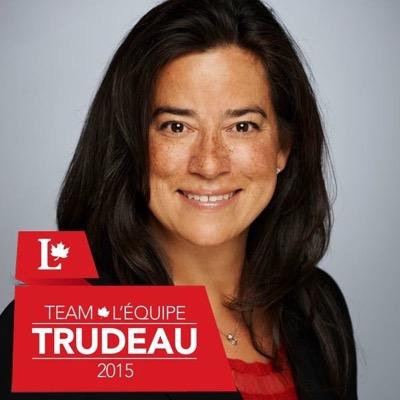A record number of elected indigenous MPs and increased numbers of indigenous voters suggests that First Nations are ready for a new partnership with the federal government.

“We had joked that we were going to paddle our canoes to the polls and that would be really good to see in the news,” says Celena Cook, community member at Hitatcu First Nation on Vancouver Island, after an 18 wheeler blocked the one road in and out of her community on election day.
” We were determined this year,” Cook adds. ” There were people who waited for the accident to be cleared and they arrived at the polls just at seven o’clock. By then the doors were locked at the poll station – but they had heard about the accident, and opened the doors and let those people vote.”
The determination of Hitatcu community members echoes the sentiment of First Nations across the country, with long waits at reserve polling stations – some reserves ran out of ballots as demand exceeded voting expectations.

The spike in indigenous participation in politics will soon be visible in the House of Commons as well. Ten indigenous MPs were elected on Monday, including Jody Wilson-Rayboult, Liberal party leader for Vancouver-Granville.
“I’m incredibly excited about getting our country back,” Wilson-Rayboult says. “I congratulate all of the indigenous candidates for putting their name forward for public office. We’re at a critical period of time for our country, and I believe that a House of Commons that more accurately reflects the diversity that exists in our country, the better and more thoughtful decisions we will make.”
During their election campaign, the Liberal government promised an inquiry into missing and murdered indigenous women, – $515 million per year to support First Nations’ education and a lift on the two per cent funding cap on First Nations programs. According to the Liberal Party’s website, the funding cap will be replaced with “one that provides them with sufficient, predictable, and sustained funding to support their communities’ priorities.”
Although it has not yet been specified how much funding will be allocated to improving on-reserve infrastructure or urban social services, Regional Chief of the Assembly of First Nations (AFN) Shane Gottfriedson still described the newly-elected government as “a breath of fresh air.”
“They have 30, 60 90 and 120 day plans on how they are going to roll out things,” says Gottfriedson.
During the election campaign, the Liberals said they welcomed the AFN’s 2015 election priorities. Of particular concern to the AFN is ‘Closing the Gap’ – an assembly action plan aimed at eliminating ‘The Gap’ that exists between the quality of life experienced by First Nations people and non-Indigenous Canadians.
“When you look at the number of social and economic determinants for both on-reserve and off-reserve, the challenge that we face is inadequate funding. When you look at the two per cent cap that has been imposed on our local governments and our urban governments, such as Friendship centres and societies, it boils down to making sure our people have access to services,” says Gottfriedson. “In terms of a national strategy, we want to sit down and look at a fiscal relationship on closing ‘The Gap’ for all of our First Nations. It’s essential that we look at long-term solutions for infrastructure needs.”
WATCH: Aboriginal leaders react to new Liberal government:
In an effort to ensure funding and support for First Nations issues, indigenous Canadians were urged by many prominent elders and chiefs to cast a ballot in this year’s election. The message was heard by AFN’s National Chief Perry Bellegarde, who voted for the first time on Oct. 19.
“I don’t want my not voting to be an excuse for First Nations people not to participate in the upcoming election,” Bellegarde said, adding he didn’t vote in the past in the interest of being non-partisan, having been told that aboriginal leaders in Canada must work with the entire Crown, regardless of the party that’s in power.
READ MORE: AFN Chief Bellegarde will vote for first time in federal election
This year’s election brought in the highest voter turnout since 1993 with more than 17 million voters casting a ballot. The Trudeau cabinet will be sworn in Nov. 4.
READ MORE: Federal election 2015: Voter turnout highest in decades
- What is a halal mortgage? How interest-free home financing works in Canada
- Capital gains changes are ‘really fair,’ Freeland says, as doctors cry foul
- Ontario doctors offer solutions to help address shortage of family physicians
- Budget 2024 failed to spark ‘political reboot’ for Liberals, polling suggests




Comments